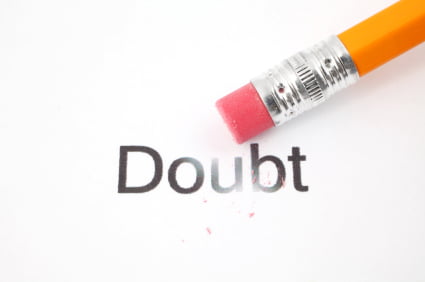If you’ve suffered a financial setback or have made a major money mistake, the first thing you need to do to turn things around isn’t to create a budget, find a financial advisor, or start investing in the latest hot stocks.
The first step in any personal economic recovery is to get your mind right.
Stop believing that your “best years” are behind you. Those are self-defeating beliefs that keep you stuck in a mental and financial time warp. Know that your best years are yet to come, and success will follow.
I once was deep in debt to the tune of $100,000. I’ve experienced the anxiety that comes with getting a pink slip. I also know what it means to dissolve a marriage after more than 10 years and the financial burden of paying alimony to my ex.
If I did not believe and know that things would get better, even as I went through those ordeals, I would not be here now. Nor would I feel the way I do today, which is extremely happy and content with nearly every facet of my life.
It would have been easy for me to focus on the past and lament the loss of good times. I could have fretted constantly over the ending of my former marriage. Or I could have cried endlessly about how I was downsized from my TV job at CNBC in 2003, or about how my six-figure 401(k) evaporated following my layoff.
But frankly, none of that would have done me any good.
Based on first-hand experience, I’ve learned that to fix your finances and create a positive economic future, you’ve got to let go of the past.
Accept the past – warts and all – for what it was: merely a series of events from which you were supposed to learn lessons. The question is: did you learn the lesson? If not, take some time to answer the question: “What was the lesson or lessons in all of that, and what could I have learned from the experience?”
While you’re practicing acceptance of past circumstances, take the time accept yourself too. None of us is perfect. We all make mistakes. We all deal with hardship.
Again, what’s most important is: how will you deal with those events, lessons, mistakes and hardships?
By coming to an understanding and an acceptance of your life, when you look back on the past – both the good and the bad – you’ll know that at least you’ve learned and grown from your experiences. If that’s true, then you need not wallow in self-pity or fear that you’ll “never have it that good again.”
Unfortunately, too many people continue to let their current and future lives be dictated by what happened many years ago.
They talk about “the good old days” or their “glory years” — a time when they earned top dollar at their jobs, when their business and personal affairs were running smoothly, when they could nearly afford anything they wanted, dined out frequently, shopped till they dropped, and travelled far and wide.
You get the point: back then, the future looked bright and there seemed to be no major obstacles in life.
For some of you stuck in the past, you may think that your “best days” occurred during the Bling Bling 1990s, or perhaps more recently – like just prior to the housing collapse of 2007 and the Great Depression that followed for several years.
Well today marks a new day. It’s 2013 – not 2009. So resolve to move forward with hope, faith and anticipation.
Steady your mind and heart to know that the past is in the past, but the best is yet to come.











Comments are closed.